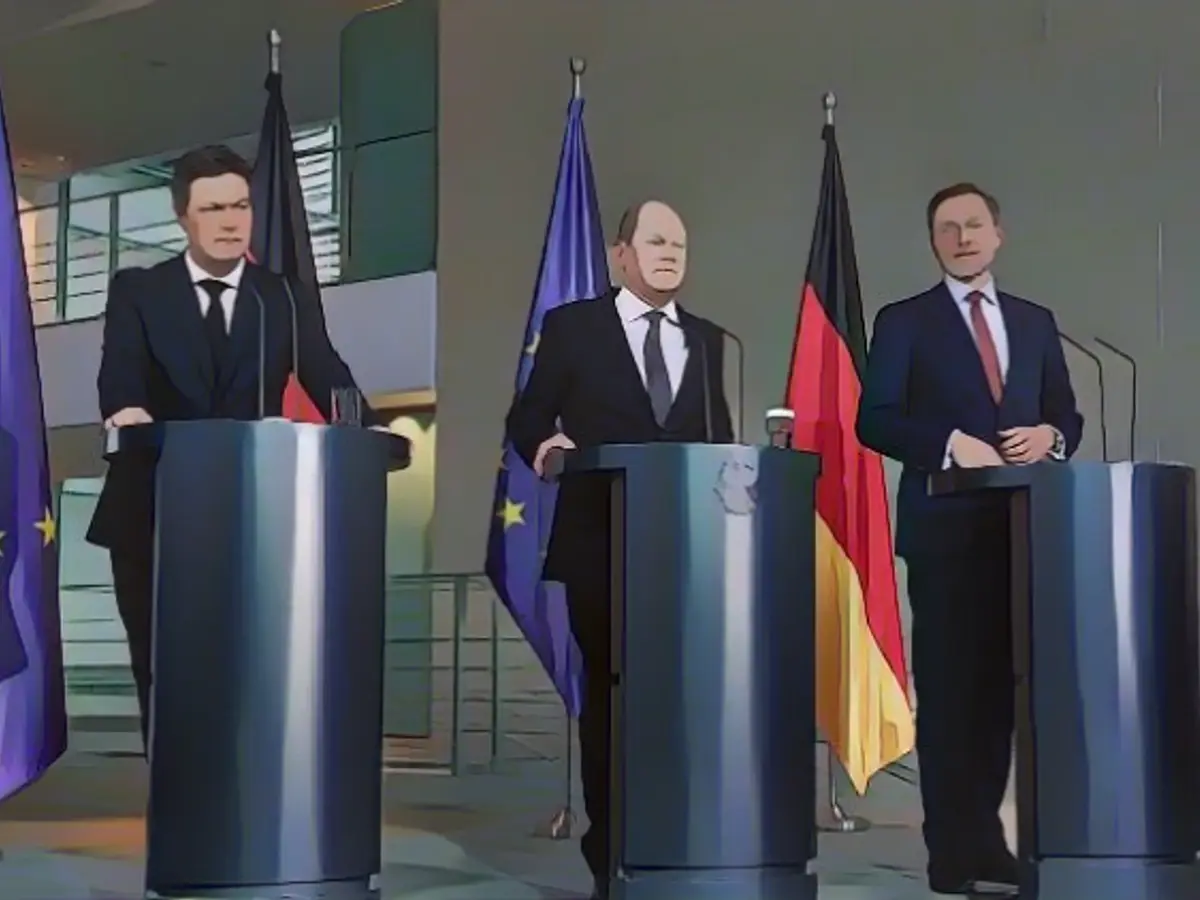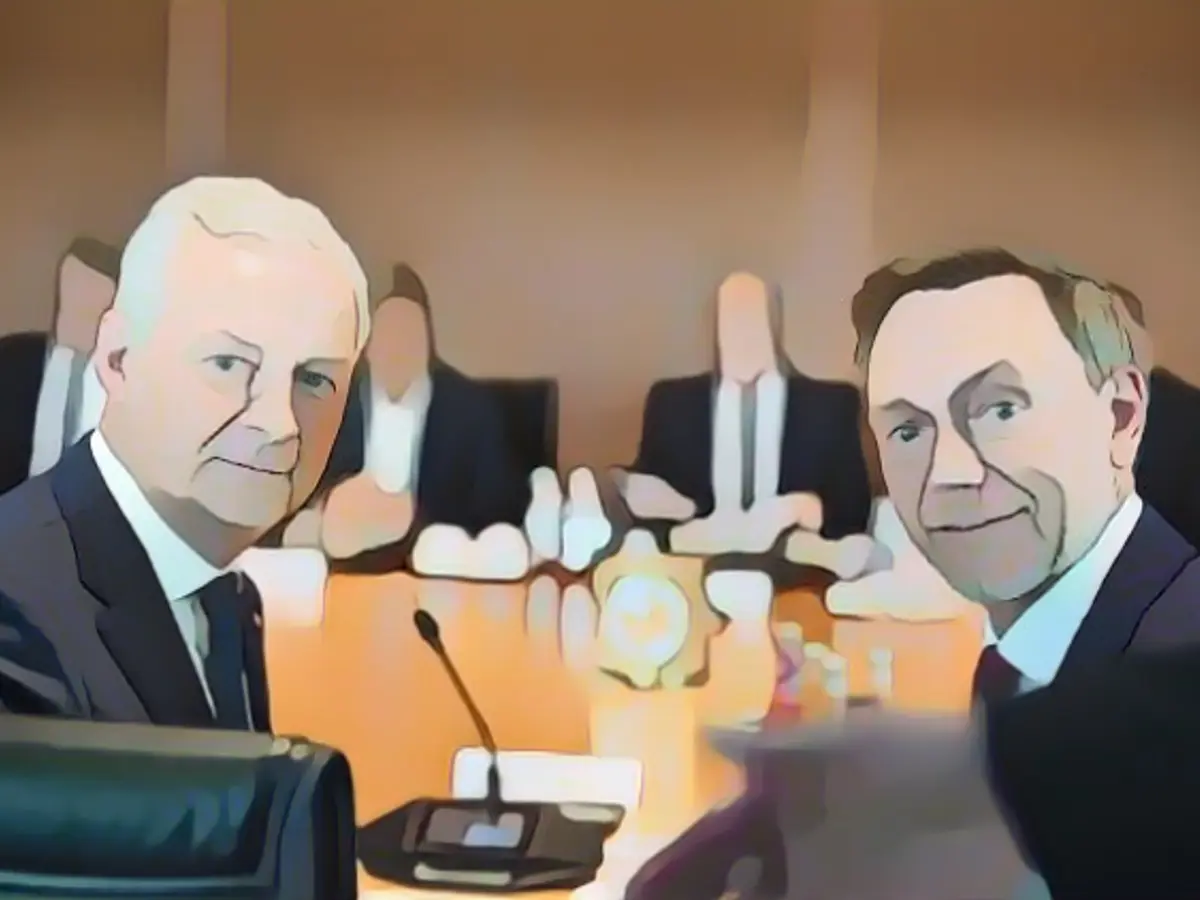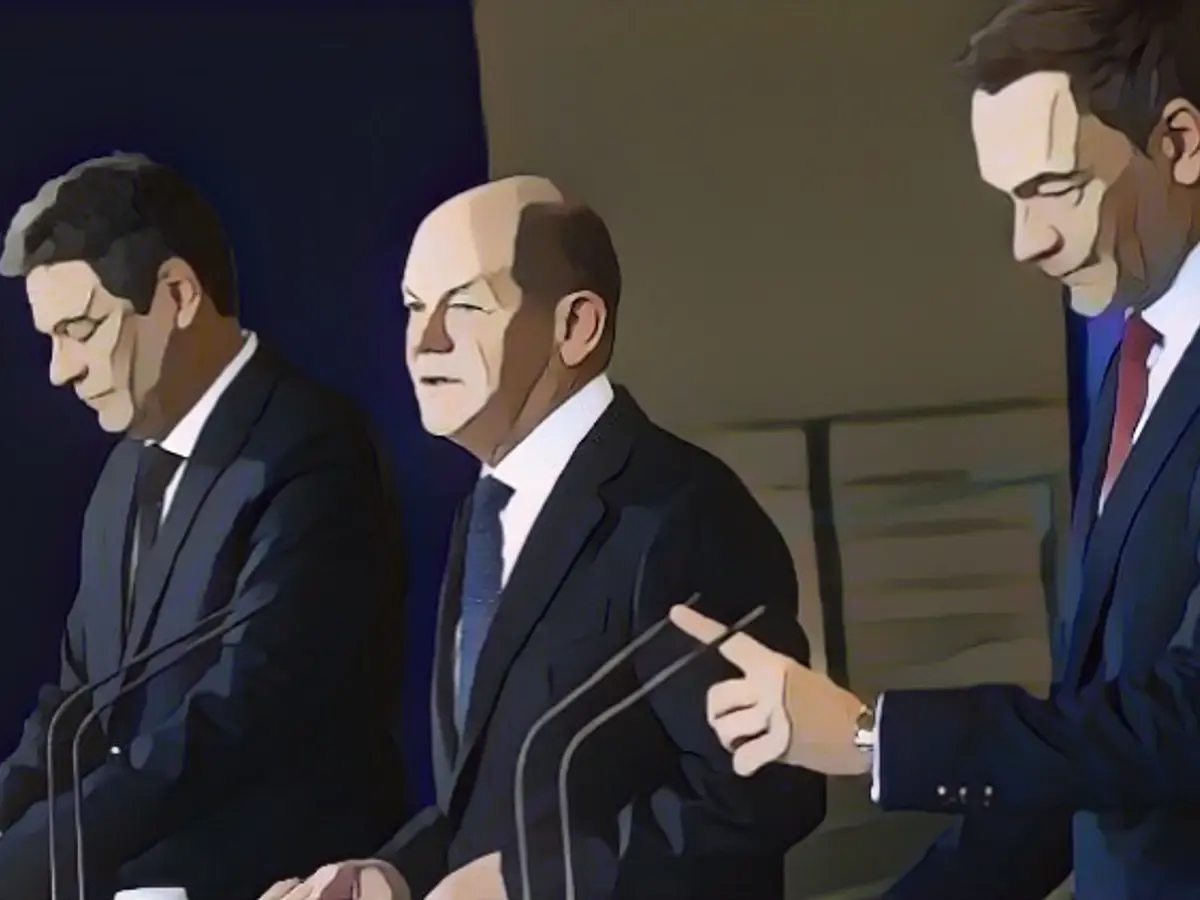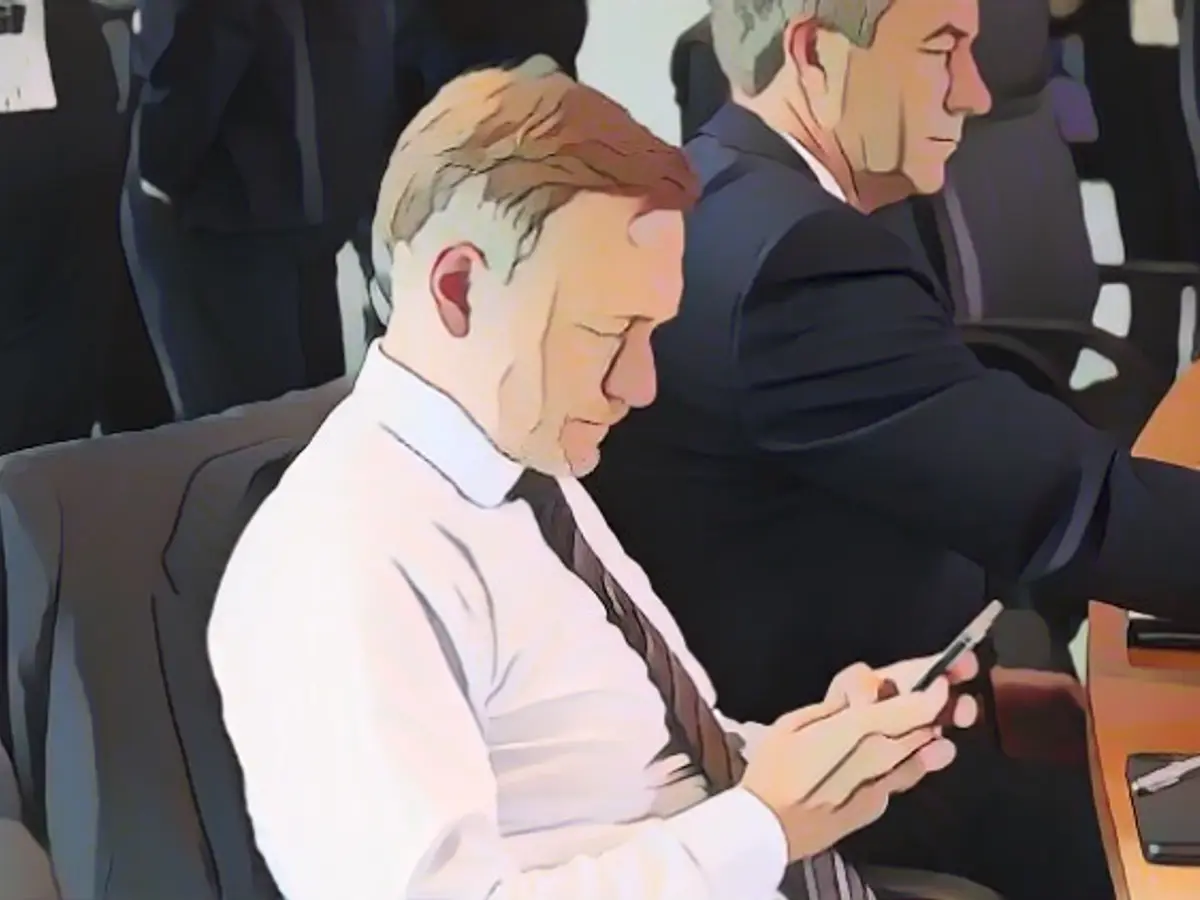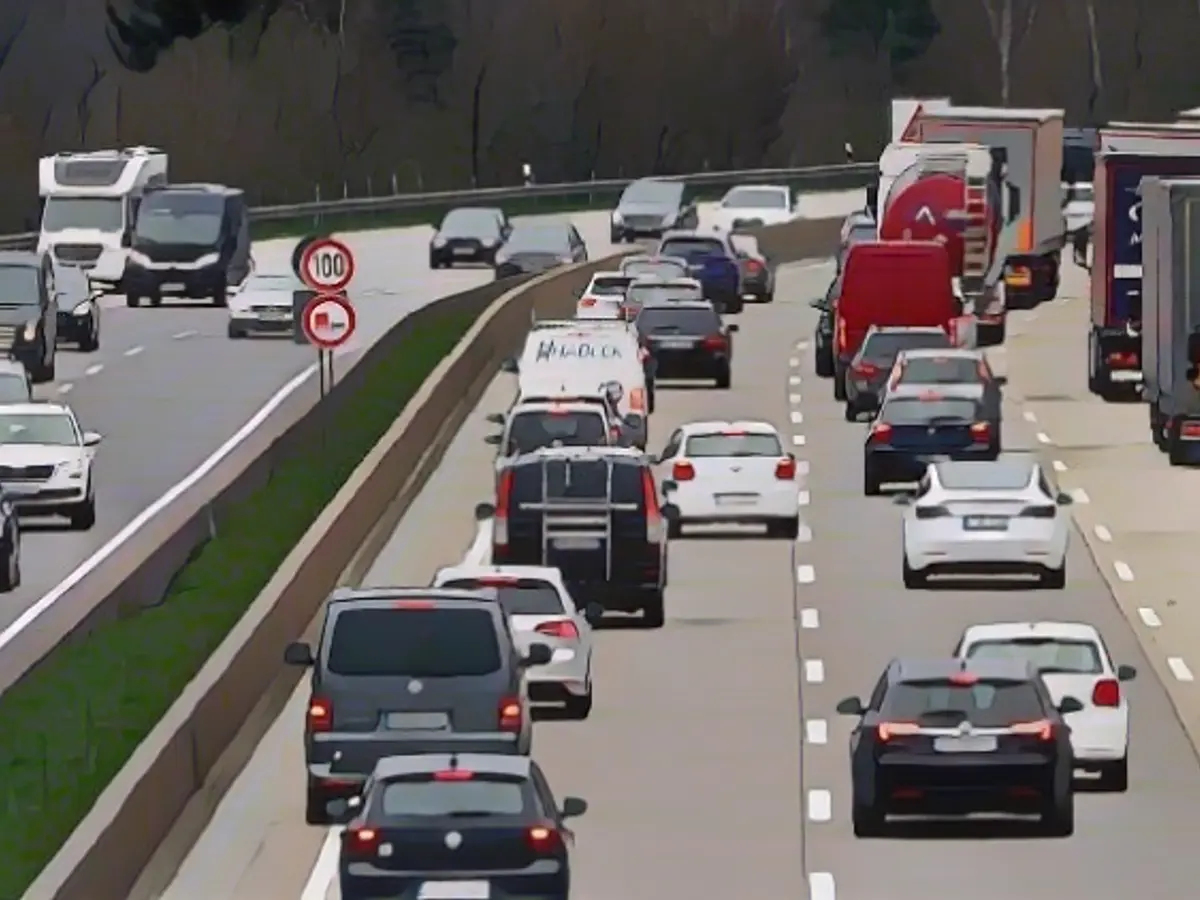Germans Express Frustration Over Energy Price Hikes and Budget Decisions
New surveys reveal that three-quarters of Germans are displeased with the Ampel coalition's resolution to tackle the 2024 budget without causing a surge in energy costs. Furthermore, a majority of people across various political parties share this sentiment, except for Green Party supporters who show some understanding towards the situation.
The polls, commissioned by the research firm Forsa for RTL/ntv, reported that 67% of respondents felt annoyed by the agreement between Federal Chancellor Olaf Scholz, Economics Minister Robert Habeck, and Finance Minister Christian Lindner. This coalition, often referred to as the "traffic light" coalition due to their party colors, aims to fill the government's financial gaps mostly by shifting the burden onto citizens.
SPD, FDP, and CDU/CSU party supporters all have negative opinions about the budget resolution, but Greens supporters display some understanding for the agreement. AfD supporters, on the other hand, unanimously dislike the approach.
Additionally, 75% of the polled population thinks that the government should have obtained budget savings not burdening the public extensively. Only a meager 22% considers the increase in energy prices as justifiable, given the coalition's agreement to boost the price of CO2 certificates.
These heightened energy costs stem from the coalition's budget resolution, as prices for petrol, heating oil, and gas will rise for citizens. The survey reflects a prevailing sentiment that the German government should have found more cost-effective ways to address the budget gap.
Insight
The widespread irritation prevailing in Germany is probably fueled by several underlying causes:
- Debt Brake Restrictions: The coalition's adherence to the debt brake limits annual deficits to 0.35% of GDP, hindering essential investments in key policies, such as infrastructure, research, and education.
- Energy Costs: The Ukraine-Russia conflict caused natural gas prices to skyrocket, generating enormous winter heating bills for households and straining businesses due to high energy costs.
- Economic Turmoil: Germany's economy has stagnated for years due to under-investment in technological advancements and infrastructure. The coalition's inability to address these issues effectively played a part in the public's frustration.
- Coalition Agreements and Internal Disputes: Tensions and misunderstandings within the Traffic Light coalition have led to friction and delayed crucial decisions, conflicting ideological values, and political bickering, thus negatively impacting public perception.
- Lack of Investment in Infrastructure: Germany's investment gap amounts to €600 billion, which is roughly 15% of the country's GDP. The coalition's reluctance to invest in infrastructure has become a significant concern for the population.
- Public Opinion on Debt Brake Reform: A large percentage of the public, including supporters of the CDU/CSU and FDP, support loosening or abolishing the debt brake to allow for increased spending on priority sectors, like education and transportation.
These factors collectively contributed to the German public's dissatisfaction with the Traffic Light coalition's management of the budget gap and its influence on escalating energy costs.
